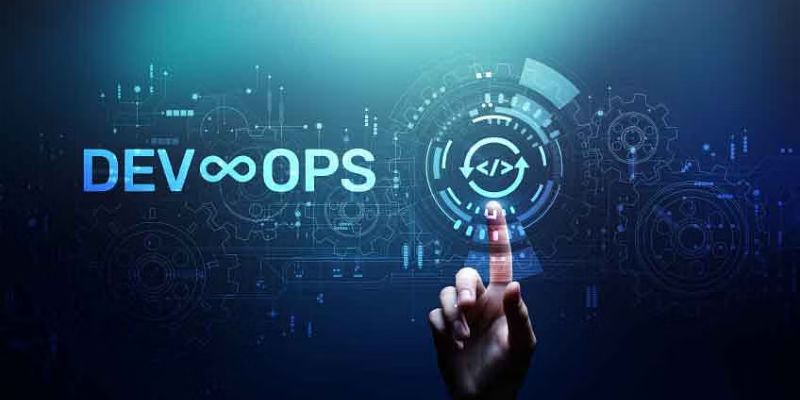
DevOps is a combination of Development (Dev) and Operations (Ops). It emphasizes automation, collaboration, and continuous delivery in software development. The main goal is to break down the traditional silos between development and operations teams, ensuring faster deployments and more reliable software. For beginners, this might sound overwhelming, but it doesn’t have to be. DevOps is all about iterative learning. You don’t need to know everything from day one. You start small and build up as you go. Join DevOps Training in Chennai to improve your skills in DevOps.
Step-by-Step Guide to Learn DevOps from Scratch
1. Understand the Basics of Software Development and IT Operations
Before diving into tools and processes, make sure you have a basic understanding of how software is developed and deployed. Learn about:
- Programming (like Python, Shell scripting, or Java)
- Operating systems (especially Linux)
- Version control systems (like Git)
- Networking and system administration basics
2. Grasp the Core DevOps Principles
There are four key principles that define DevOps:
- Automation: Reduce manual tasks
- Continuous Integration/Continuous Deployment (CI/CD): Automate testing and deployment
- Monitoring and Feedback Loops: Detect problems early
- Collaboration and Communication: Work efficiently across teams
Once you understand these, you’ll know why certain tools exist and how they fit into the pipeline.
Middle Section: Mastering the Essential DevOps Tools
Now let’s talk about the heart of DevOps: the tools. Using the right set of DevOps Tools makes the learning process more effective. Here are the main categories and popular tools in each:
a) Version Control Systems
- Git: Essential for source code management. Learn to clone, commit, merge, and push.
b) CI/CD Tools
- Jenkins: One of the most widely used automation servers.
- GitLab CI/CD: Offers seamless integration with Git.
c) Configuration Management Tools
- Ansible: Easy-to-use and widely adopted.
- Chef and Puppet: More powerful and suited for larger infrastructures.
d) Containerization
- Docker: Learn how to build, run, and manage containers.
- Kubernetes: For container orchestration and deployment at scale.
e) Monitoring and Logging
- Prometheus and Grafana: Great for metrics and dashboards.
- ELK Stack (Elasticsearch, Logstash, Kibana): Used for log analysis.
Understanding and experimenting with these tools will give you hands-on experience that is crucial in DevOps. Many of these tools are open-source, so you can start experimenting without cost.
How to Practice DevOps on Your Own?
1. Build Your Own DevOps Pipeline
Start small by setting up a local pipeline using Git, Jenkins, and Docker. Automate the build and deployment of a basic application, and track changes using version control.
2. Use Cloud Services
Practice deploying apps on cloud platforms like AWS, Google Cloud, or Azure. Many cloud platforms offer free tiers, which are great for hands-on practice.
3. Join Online Communities
Being part of a DevOps community allows you to learn from real-world problems and stay updated with the latest trends. Platforms like GitHub, Reddit’s r/devops, and Stack Overflow are valuable resources.
Why Projects and Practice Matter
It’s easy to watch tutorials and read documentation. But the real learning happens when you apply that knowledge. Projects such as:
- Deploying a personal blog with CI/CD
- Building a Docker-based development environment
- Setting up log monitoring using the ELK Stack
Soft Skills Also Matter in DevOps
While technical expertise is important, soft skills play a huge role in DevOps success. You’ll be working across departments, handling different types of pressure, and possibly managing systems at scale. Focus on:
- Communication
- Collaboration
- Problem-solving
- Adaptability
These skills will make you a well-rounded DevOps professional.
Certifications: Are They Worth It?
Certifications can be a great way to validate your skills and stand out in job applications. Some of the popular DevOps certifications include:
- AWS Certified DevOps Engineer
- Microsoft Certified: DevOps Engineer Expert
- Docker Certified Associate
- Kubernetes Certification (CKA)
Before spending money, check if the certificate aligns with your career goals and current skill level.
Conclusion: Paving the Path for a DevOps Career
By now, you should have a clear picture of how to begin your DevOps journey. Start with the basics, build your skills step-by-step, master the tools, work on real projects, and develop the right mindset. There’s no rush DevOps is a marathon, not a sprint. To stay committed, keep track of your progress, seek mentorship, and never stop learning. Whether you choose an AWS Training in Chennai, an online platform, or self-guided practice, the key is consistency. As you grow your capabilities, you’ll open doors to many exciting opportunities in the field of DevOps.
